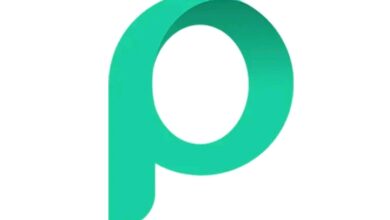A Comprehensive Guide to Mortgage Loans in Nigeria: Requirements and Top Lenders

In Nigeria, obtaining a mortgage loan to finance a property purchase is a significant milestone for many individuals and families.
Understanding the intricacies of mortgage loans, the requirements, and the lenders available can greatly simplify the process.
In this blog post we aims to provide an SEO-optimized guide on mortgage loans in Nigeria, including a list of top mortgage lenders in the country.
Understanding Mortgage Loans
A mortgage loan is a long-term financial commitment used to purchase or refinance property.
The loan is secured by the property itself, which means that if the borrower fails to make the required payments, the lender has the right to seize the property through foreclosure.
Mortgage loans come with different interest rates and repayment periods, and they play a vital role in enabling individuals to become homeowners without bearing the entire property cost upfront.
Requirements for Obtaining a Mortgage Loan in Nigeria
While mortgage loan requirements may vary among different lenders, some common criteria are typically expected from potential borrowers:
1. Proof of Income: Applicants are usually required to provide evidence of a stable and sufficient income source to demonstrate their ability to repay the loan.
2. Down Payment: Most mortgage lenders in Nigeria will require a down payment as a percentage of the property’s purchase price. This upfront payment reduces the loan amount and shows the borrower’s commitment.
3. Creditworthiness: Lenders assess the applicant’s credit history to determine their creditworthiness and assess the risk associated with lending to them.
4. Property Evaluation: A thorough evaluation of the property’s value is conducted to ensure that it serves as adequate collateral for the mortgage loan.
Approved Mortgage Lenders in Nigeria
Here is a list of reputable mortgage lenders in Nigeria along with their accreditation status and expiration dates:
1. Infinity Trust Mortgage Bank Plc (National) – Accreditation valid until September 12, 2024
2. Abbey Building Society Plc (National) – Re-accreditation in process
3. Nigeria Police Mortgage Bank (State) – Accreditation valid until November 6, 2023
4. Delta Trust Mortgage Bank Ltd (State) – Accreditation valid until March 3, 2024
5. Jigawa Savings & Loans (State) – Accreditation valid until March 12, 2024
6. City Code Savings & Loans Limited (State) – Expired
7. AG Homes Savings & Loans Limited (State) – Re-accreditation in process
8. LivingTrust Mortgage Bank Plc (Formerly Omoluabi Mortgage Bank Plc) (State) – Accreditation valid until August 26, 2024
9. Brent Mortgage Bank Limited (State) – Accreditation valid until December 7, 2024
10. Gateway Mortgage Bank Ltd (State) – Accreditation valid until April 14, 2023
11. FHA Homes Savings & Loans Ltd (State) – Expired
12. Homebase Mortgage Bank Limited (State) – Accreditation valid until March 24, 2024
13. First Generation Mortgage Bank Ltd (State) – Accreditation valid until March 10, 2024
14. Platinum Mortgage Bank Ltd (State) – [Accreditation status and expiration date not provided]
FAQs
What is the maximum loan term offered by mortgage lenders in Nigeria?
The maximum loan term varies among lenders, but it typically ranges from 15 to 25 years, depending on the borrower’s age, income, and loan amount.
Can foreigners residing in Nigeria apply for mortgage loans?
Yes, some mortgage lenders in Nigeria offer mortgage products to foreigners residing in the country, subject to certain eligibility criteria.
What is the difference between a fixed-rate and an adjustable-rate mortgage?
In a fixed-rate mortgage, the interest rate remains constant throughout the loan term, providing predictability in monthly payments. In an adjustable-rate mortgage, the interest rate fluctuates periodically, affecting the monthly payments accordingly.
How can I improve my chances of getting approved for a mortgage loan?
To improve your chances of mortgage loan approval, maintain a good credit score, save for a substantial down payment, provide accurate and complete documentation, and choose a property that meets the lender’s criteria for valuation.



